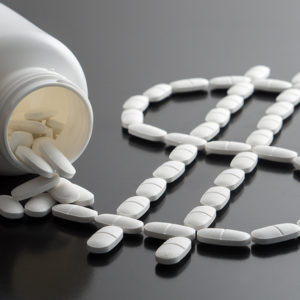Congressional Democrats have reintroduced H.R. 3, a drug price-control bill that passed the House in 2019 but failed to gain traction in the Senate.
The Democratic leadership believes it will have better luck this time. While that remains to be proven, one truth stays constant: In the long run, H.R. 3 would hurt the very patients Democrats want to help. Here’s why.
I represent a coalition of life-science investors, all of whom support legislation that would make drugs more accessible and eliminate bad actors from a truly life-saving and entrepreneurial industry. But from the perspective of the biotech investor, the Elijah E. Cummings Lower Drug Costs Now Act — to give HR.3 its full name — could just as easily be called the End Investment In Biotech Now Act.
The proposed law sets a “maximum fair price” for new medicines. When the bill was first introduced in 2019, the Congressional Budget Office forecast that it could slash prices by as much as 75 percent, thereby saving the government $456 billion over 10 years. That means $45.6 billion would likely be stripped from American innovators each year.
Shepherding this measure to fruition would send a clear message to life science investors: You aren’t wanted here. To patients — whom the bill purportedly benefits — it says we’ve reached the pinnacle of medical discovery, leaving unmet needs, well, unmet. After all, sustained private investment into American biotech firms — and the scientists behind them — drives innovation.
A Journal of the American Medical Association study – which looked at 63 of the 355 new “therapeutic drugs and biologic agents” approved by the Food and Drug Administration between 2009 and 2018 — found that the “estimated median capitalized research and development cost per product” was $985 million. The mean cost of developing a new drug, says Journal of the American Medical Association, “has been the subject of debate.” Estimates range to $2.8 billion.
Life-altering drugs, like money, do not grow on trees. Billions were spent in the pursuit and perfection of the COVID-19 vaccines that are helping humanity battle the present pandemic. And if you’ve grown tired of reading about Moderna and Pfizer-BioNTech, there are plenty of other examples of cutting-edge therapeutics.
AXS-05, from Axsome Therapeutics, targets depression and Alzheimer’s. A drug called Cabometyx, developed by Exelixis, treats kidney and liver cancer. Trikafta, from Vertex Pharmaceuticals, treats the underlying causes of cystic fibrosis. I could go on for many paragraphs, but let’s just say that we wouldn’t have these drugs without investors.
And let’s pay attention to that last word: investors. These are people who “invest” our money, not give it away. They’re often the stewards of Americans’ retirements and educational institutions via pension funds and endowments, with a solemn obligation to grow the capital they deploy. Despite the daunting expenses and complexities, investors continue to pour money into biotech, recognizing that we are at a breakthrough moment for a host of modalities. They invest in the hope that their investments will eventually yield new medicines for patients.
They do so, also, to reap a return.
If the government introduces price controls, that critical incentive would be crippled. I often get asked why, especially if the “fair price” is above the cost of manufacturing. The reason? The big winners pay for the big losers. They also pay for the hundreds of medicines that are made despite not being a commercial success.
If we cap the winners, or even remove the possibility of a big return, investors would have no choice but to dedicate their resources elsewhere. Capital flows like water, and it does not flow uphill.
And what about the patients?
The Congressional Budget Office estimates H.R. 3 would result in between eight and 15 fewer drugs coming to market over 10 years. The White House Council of Economic Advisers put the number of drugs lost over a decade due to this bill at 100.
Start-ups — which are integral to America’s innovative dynamism — would be the hardest hit. A study by healthcare analysts at Vital Transformation found that H.R. 3 would lead to an 88 percent drop in new medicines developed by small biotech companies.
We can’t know exactly what we’ll lose. Maybe it will be a cancer treatment or a cure for Alzheimer’s disease.
Or maybe it will be a vaccine — against the next pandemic.

